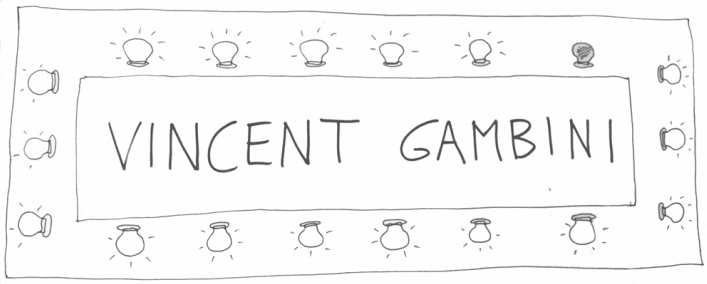Much is written on him, including great profiles in magazines, and I won’t add anything here.
I came across and read a profile by the New Yorker, from way back in 1993. At the time Jay was preparing his defining show, Ricky Jay and his 52 assistants.
The article goes into some depth as to how much of a book collector he was, portraying the man as a true bibliophile, and recounting the dismay that surrounded illusionist David Copperfield’s acquisition of a large collection of rare books on magic and various other curiosities (a collection which Jay had carefully catalogued and expanded upon, under the patronage of a banker, until said banker went bankrupt).
Reading the profile, then returning to Twitter, I couldn’t help but be amazed at the galling idiocy of Copperfield, who today was advertising a bag he’s designed (from his latest show), or of the magic company Vanishing Inc, advertising a magic product to buy. On a day in which there might be pause to reflect on what matters, the unashamed promotion and business-as-usual is especially jarring. And not just promotion of, say, a work (a show, a book, an event), but merely promotion of products, whose formula for success is always the same, whether you’re selling beauty cream or the latest trick pack of cards: “hey you, are you dissatisfied? Well if you buy this product, your life will change…” It is a fabulous deceit (no pun intended), whose direct consequence is constantly lowering the bar, reducing magic to a transaction, to a product that can be bought and sold. Inevitably the buyer gets bored, and so new products must fill the void, the frustration, the difficulty of maintaining an ongoing relation with the art form. Again the formula: “hey don’t worry about studying and learning things and trying, and failing, and trying again. Just click here to purchase this item. All has been taken care for you, because we value you…”
For those who don’t know, the so called magic scene, in the last 20 or more years, has increasingly turned into a toy shop for addicted adult-children with short attention spans. Addicted to the latest props-that-do-magic, addicted to the aura that you’re supposedly buying when you purchase the product of a famous star (“As seen on Penn and Teller’s Fool Us!”), addicted to the cheap immediate pleasure that comes with compulsive buying.
Ricky Jay (who was most likely an imperfect person, from what I gather) carved a path that was unique, merely because he cultivated his interests, and fashioned them into his performing persona. A brilliant magician, but also a model to emulate (artists do exactly this: follow their path, work hard at it). Ricky Jay’s model is a reminder to cut the crap out. Call out a demeaning culture of greed for what it is. No art form, no scholarship, no interesting events can develop in such a market of short-lived gizmos and toys. To all sellers of magic products: find your income elsewhere. Don’t believe in the inevitability of capitalist relations. There are alternatives. Your amazing latest ‘discoveries’ are distractions, and you know it. You’re not contributing anything, you’re taking time away from people who might just be able, with enough concentration and dedication, to develop interesting ideas, thoughts and performances.
In short (and this is more for magicians). Magic isn’t “broken”. It has been taken over by greedy ‘dealers’ and magic shops and magicians who are all too eager to exploit and capitalise people’s dissatisfaction. Yes, doing and studying magic is hard, otherwise it wouldn’t be worth it. We don’t need another product, another surge of dopamine, followed by a low, followed by another product, etc. We need to cut off this ridiculous addiction and develop slower forms of study, practice, rehearsal and exchange that can re-define the field. There are some great magicians already, and always, doing this, but they are always a small minority. This needn’t be the case. Where to start? We ought not let avid and destructive commercial interests define what is and isn’t possible in an art form.


 RSS Feed
RSS Feed